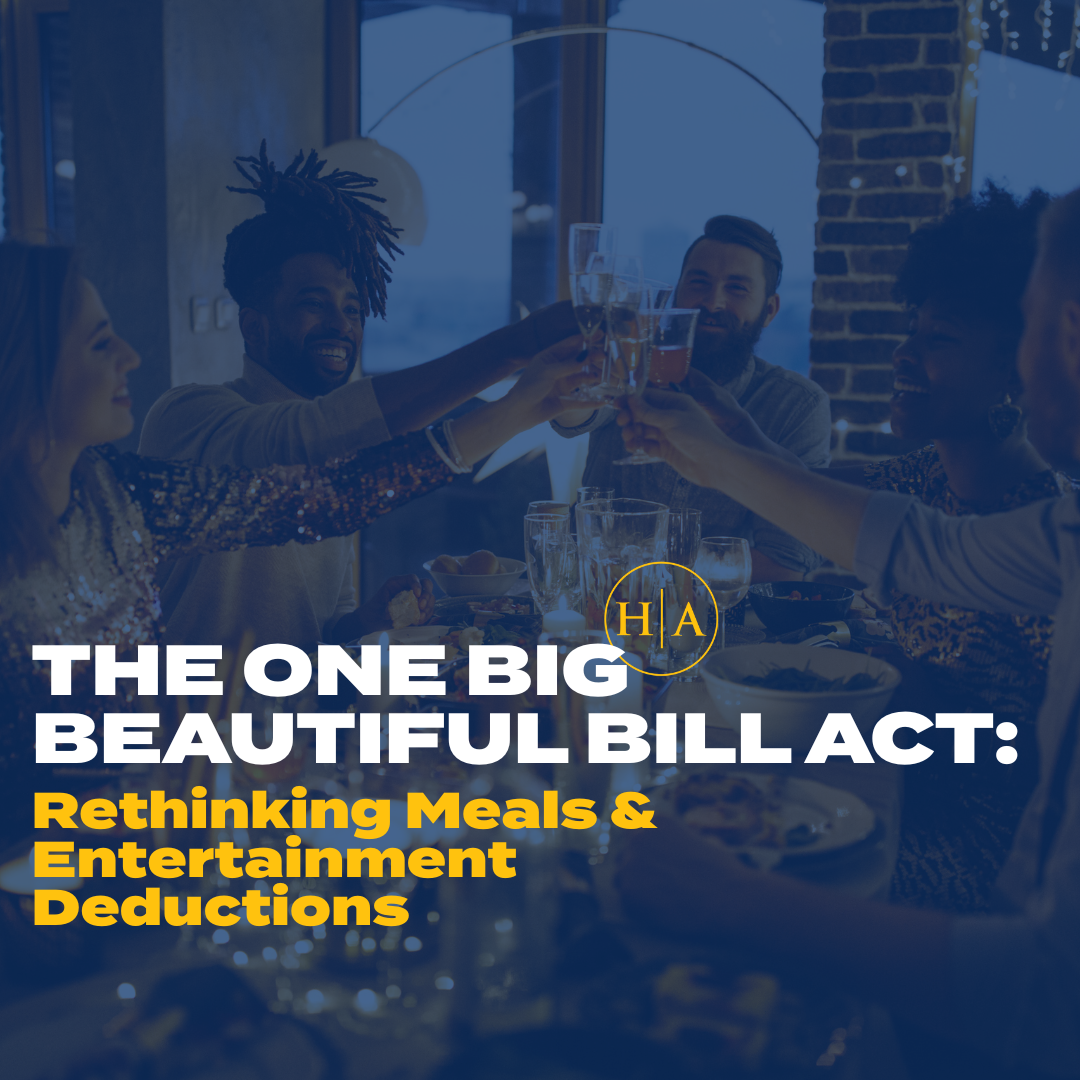The One Big Beautiful Bill Act (OBBBA) brings several important updates to how businesses can deduct meals and entertainment (M&E) expenses. While some rules remain the same, others will change starting in 2026. Understanding what’s deductible—and what’s not—can help you protect valuable tax savings.
Entertainment Is Still Out, Meals Are Still Limited
- Entertainment expenses remain nondeductible under Sec. 274.
- Business meals may still be 50% deductible if:
-
- They’re not lavish or extravagant
- An employee is present
- They serve a valid business purpose
- They’re separately stated from entertainment costs
OBBBA keeps these rules intact but adds new timing-based restrictions.
Employer-Provided Meals: Changes Coming Soon
Through 2025
- Employer-provided meals remain 50% deductible if they meet Sec. 119 requirements.
- Meals at employer-operated eating facilities are also deductible through the end of 2025.
- Restaurants, caterers, and similar businesses may continue deducting meals provided to employees, generally at the 50% limit.
Starting in 2026
- Meals at employer-operated eating facilities become nondeductible.
- Meals provided for the convenience of the employer also become nondeductible.
- Exceptions remain for:
- Food and beverage operations (restaurants, catering)
- Fishing vessels and certain fish processors
Where 100% Deductions Still Apply
Some meals can still qualify for full deductibility, including:
- Meals treated as employee compensation
- Recreational or social events for employees (holiday parties, company picnics)
- Meals provided to the public (e.g., marketing or promotional events)
- Meals sold to customers
- Certain reimbursed expenses
Documentation Remains Essential
Even as deductibility changes, substantiation requirements stay the same. You’ll need records for:
- Amount
- Date and location
- Purpose of the meal
- Names or business relationships of attendees
Planning Tips for 2025–2026
- Segregate costs between employee meals and customer-facing expenses.
- Prepare for the phaseout of deductions on employer-provided meals.
- Track carefully if you operate in foodservice or fishing industries where carve-outs apply.
- Consider setting up different meals expense accounts in your general ledger to track the different types of meals to help track internally and help come tax time.
- Consider compensation strategies that preserve deductions.
- Review policies now to avoid surprise disallowances in 2026.
Bottom Line
OBBBA doesn’t change everything, but it does accelerate the phaseout of employer-provided meal deductions. The impact begins in 2026, so planning ahead now can help you preserve tax benefits. Businesses in industries with exceptions—like restaurants, caterers, and fisheries—should pay close attention to how expenses are tracked and categorized.




